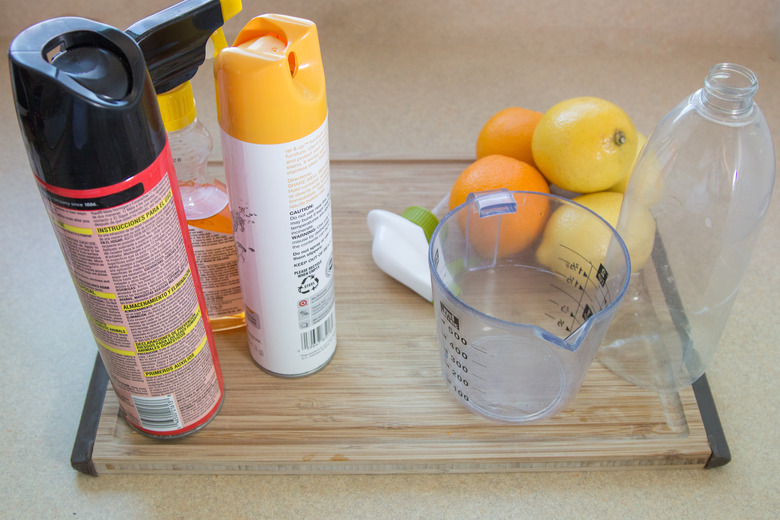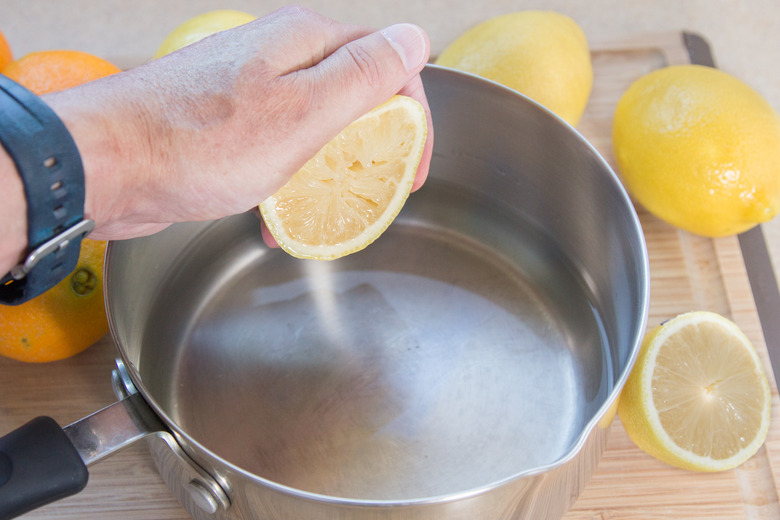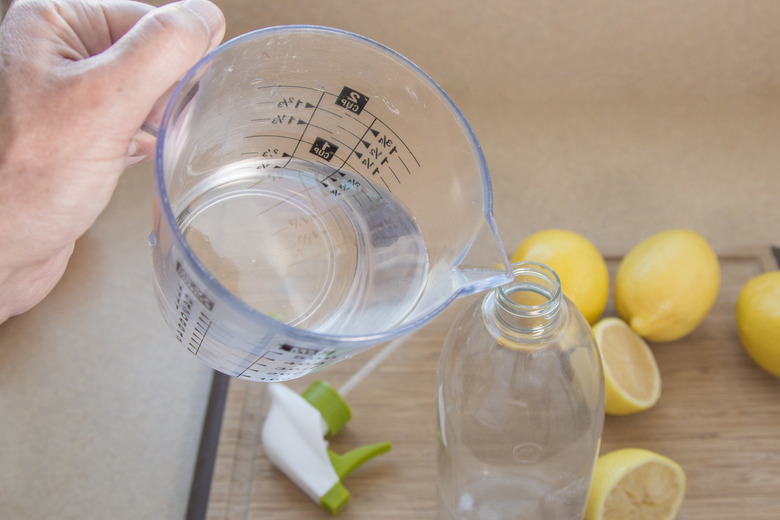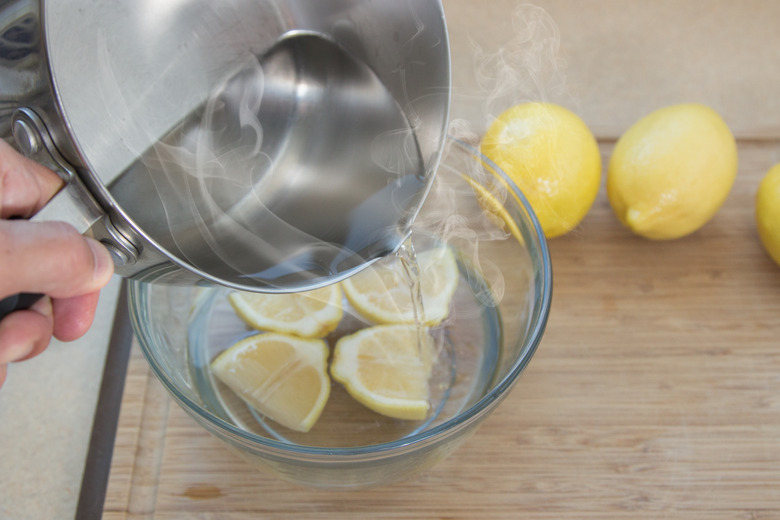How To Make Flea & Tick Repellent With Lemon Juice
Things Needed
-
Lemon
-
Spray bottle
-
Sponge
Many flea and tick repellents are available for purchase. Most are made with chemicals which not only harm the pest but may cause harm to pets and people. Also, many effective flea and tick repellents can be quite costly. By making your own flea and tick repellent with lemon juice (and a few other ingredients) you can save yourself a bundle and keep your pet and environment safe.
Step 1
Make a flea bath with citrus fruit. Add lemons, limes, oranges and grapefruits together or in any combination. Squeeze out all the juice of each fruit and discard. Take the leftover rind and pulp that are still inside and boil them in water in a pot. Bring it to a complete boil and then let the concoction simmer for a few hours. Add a cup or so of the citrus solution to the pet's bath water and fleas will be killed on contact. Any remaining solution can be frozen and used at a later date.
Step 2
Create a flea and tick spray with lemon juice. Add one part water to one part juice from a lemon to a spray bottle. Make as much of the spray as you want. Spray the pet's coat each time before it goes outside to keep fleas and ticks away. Spray on furniture where pests may be hiding waiting to re-infest your animal. Before applying to furniture, especially delicate fabrics like velvet, test the solution on a small corner or spot on the furniture.
Step 3
Give your pet a lemon sponge bath. This is another bath time solution but the solution is being applied directly to the pet's coat. Slice a lemon in quarters and score the rind with a knife and place it in a bowl. Pour boiling water onto the lemon in the bowl. Let the mixture sit out overnight. The next morning use a sponge to dab the solution on the pet. Any fleas should die instantly. Put this mixture into a spray and spray the pet all over, especially on the tail area, around the base of the ears and armpit areas.
Always check with your veterinarian before changing your pet's diet, medication, or physical activity routines. This information is not a substitute for a vet's opinion.



